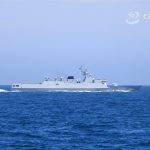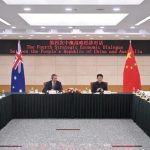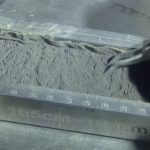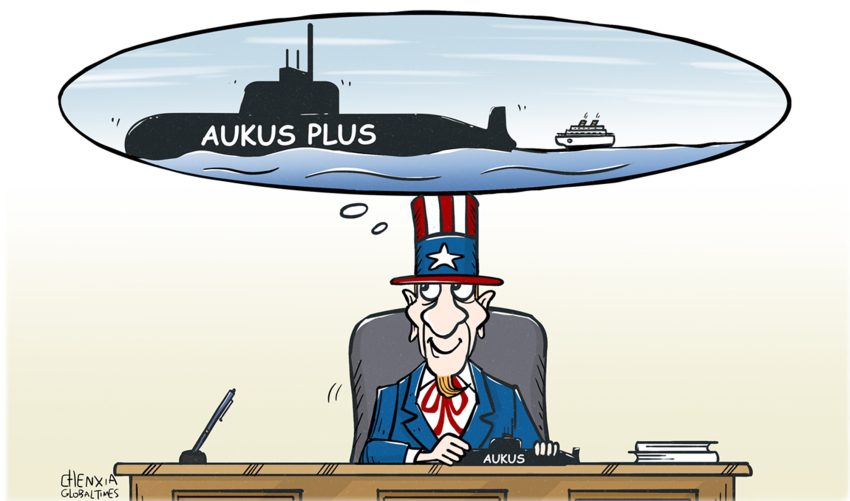
China slams Campbell's linking AUKUS with Taiwan question, calling trilateral pact a case of 'typical Cold War mentality'
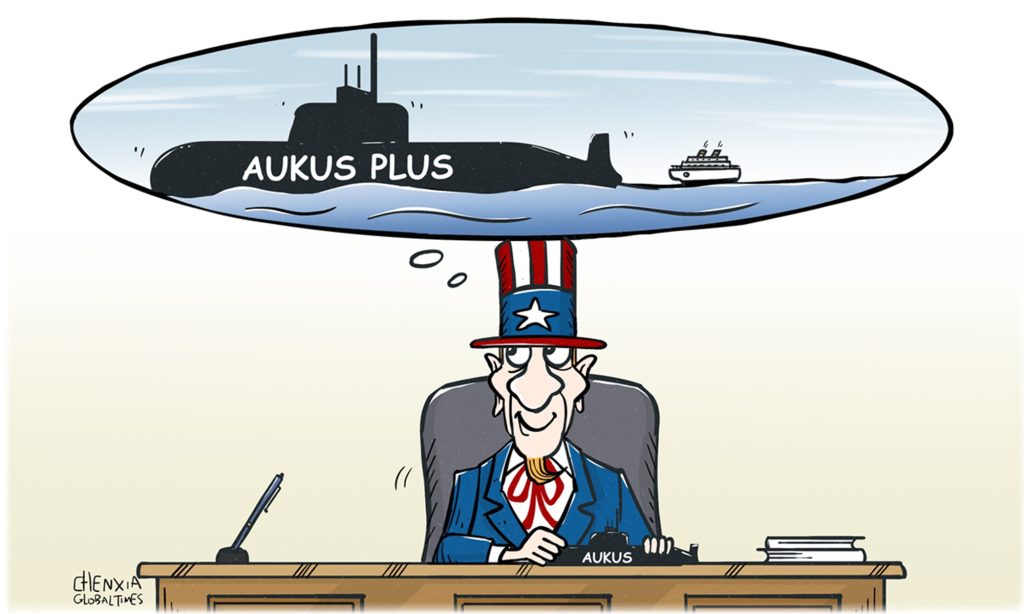
China's Foreign Ministry slammed recent remarks made by senior US diplomat Kurt Campbell on linking the AUKUS military pact to the Taiwan question, expressing strong dissatisfaction and resolute opposition toward the remarks. And concerning the possible AUKUS expansion to include Japan, the ministry said China does not support provoking bloc confrontations and opposes increasing the risk of nuclear proliferation.
In a press conference on Tuesday, the ministry's spokesperson Mao Ning said Campbell's remarks disregard the facts, reverse black and white, fan the flames of conflict, and are malicious in intent. "China is strongly dissatisfied with this and resolutely opposes it."
The so-called trilateral security partnership established by the US, UK and Australia is essentially about provoking bloc division and military confrontation through clique-based military cooperation, a typical Cold War mentality that increases the risk of nuclear proliferation and exacerbates the arms race in the Asia-Pacific, undermining regional peace and stability, Mao said, noting that China and many countries in the region have expressed serious concerns and opposition to this.
The US State Department's No.2 diplomat recently suggested that the AUKUS submarine project between Australia, Britain and the US could help "deter any Chinese move against Taiwan," Reuters reported on Wednesday.
The senior US diplomat also pointed out lately that "this trilateral is so important, given the shared interest the US and Japan has in the maintenance of peace and stability in the South China Sea," Japanese media outlet Nikkei reported on March 22.
Taiwan is an inalienable part of China's territory and the Taiwan question is China's internal affair, which no external force has the right to interfere in, the spokesperson stressed.
"What is the intention of the US in trying to link the so-called 'trilateral security partnership' submarine plan with the Taiwan question?" Mao asked.
China's will to defend its national sovereignty and territorial integrity is unwavering, and no one should underestimate or misjudge it, she said.
The US, UK, and Australia are not direct parties to the South China Sea issue and should not intervene in efforts by the relevant parties to resolve disputes through negotiation and consultation. The recent tensions in the South China Sea and increased regional confrontation are inseparable from the US's actions in roping in its allies, the spokesperson said.
On Ukraine, Campbell said the US government has assessed that "China helped Moscow 'retool' and Russia 'almost completely reconstituted militarily' after early setbacks in the Ukraine war," Reuters reported Thursday.
Regarding the Ukraine issue, Mao said that China is neither the creator nor a party to the Ukraine crisis and has played and will continue to play a constructive role in its political resolution.
"China urges the US to reflect on its own actions, stop fanning the flames and pouring oil on the fire, stop attacking and smearing the normal state relations between China and Russia, and stop shifting blame to China," Mao said, noting that China is a builder of world peace, a contributor to global development, and a maintainer of the international order.
On the issues of peace and security, China is the major country with the best record, which is a well-recognized fact by the international community, and the US is in no position to criticize China, she said.
Meanwhile, the defense ministers of the US, UK and Australia are reportedly entering talks about broadening the AUKUS military alliance, with Japan emerging as the leading candidate for inclusion.
On the potential inclusion of Japan to the military alliance, the spokesperson said that China does not support provoking bloc confrontations, opposes increasing the risk of nuclear proliferation, and is against escalating the arms race. "Relevant countries should earnestly fulfill their international obligations and avoid actions that would undermine regional and world peace and stability," Mao said.
The spokesperson also noted that due to Japan's history of militarism and aggression in modern times, Japan's military and security movements have always been a concern to its Asian neighbors and the international community.
"Japan should earnestly reflect on its history of aggression, abandon the practice of forming exclusive military and security cliques, and truly follow a path of peaceful development," Mao said.

